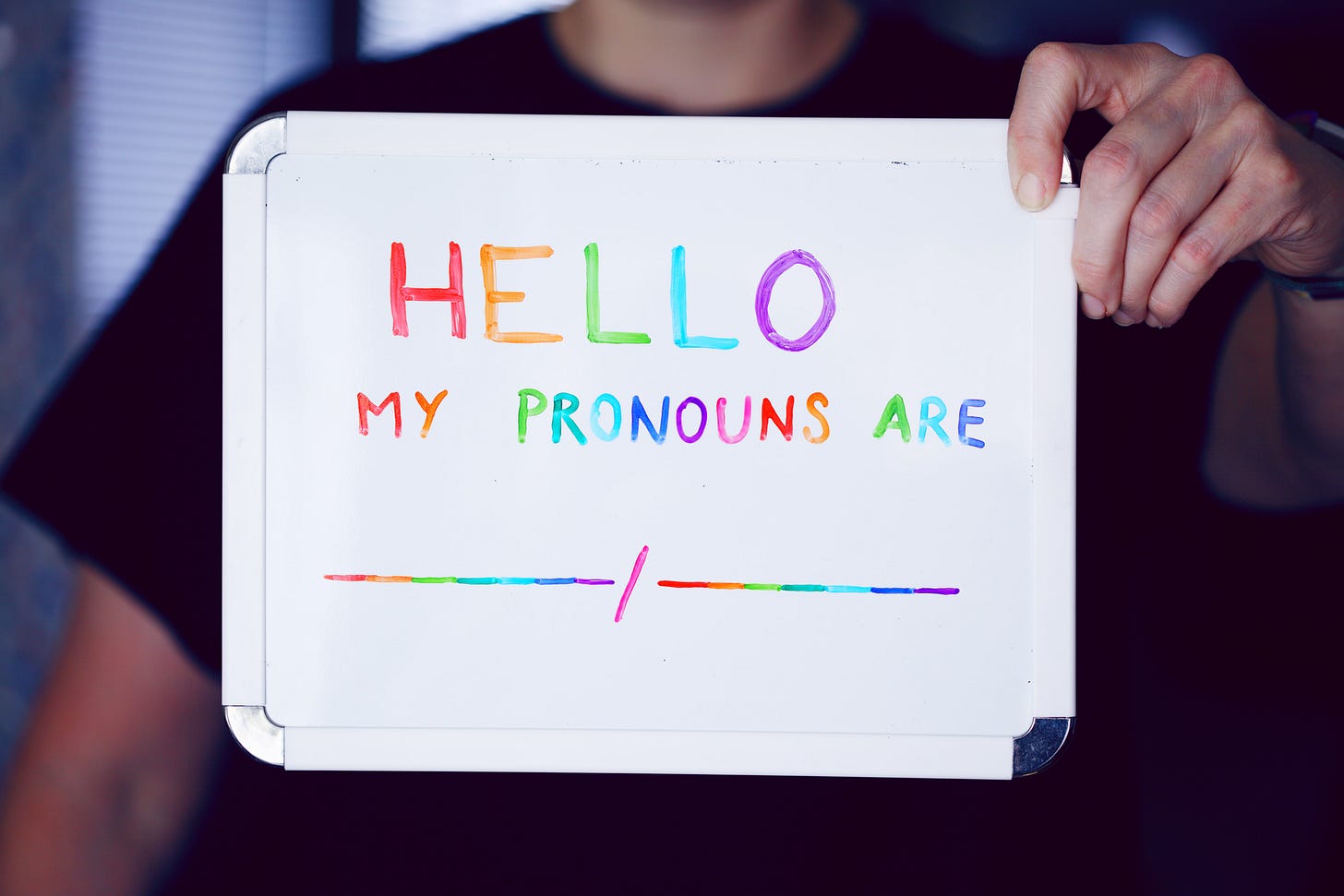The cognitive overload of political correctness
Muse #136 - it is very draining to communicate
I know this is a very controversial topic. Even at home, I am often an outlier with my thoughts on this. But do hear me out.
I personally find gender pronouns a cognitive overload and extremely draining while communicating. 100’s of other things that have been made extremely complex in language over the years. Unnecessarily, in my opinion, whitewashing reality with nicety, when the reality is just that - reality, nothing more, nothing less.
It is hard to meet the expectations (while communicating) of someone on the other side all the time, in meeting the needs that each one wants rather than being yourself and who you are being the basis of being accepted as you are.
Don’t get me wrong, I do want to support people and their wishes to be seen as they want to be. But, there is more to it than playing this “word game” as support. Words don’t mean anything until one follows through and start seeing others as human (Funny that even that word “human” has “man” in it), no matter what the parameters are - gender being just one of them.
I have written about Nuances of language before and as being a fan of George Carlin and his preciseness. But, today, this article was triggered by reading an article on the history of gender pronouns, which got me thinking on this subject.
Watch this short video from George Carlin (on PTSD) as an example of how English language usage became more complex.
While I grew up, I was trained to speak my Tamil language in a style that reflected respect. This style of language use is called Honorifics - and it applies to various languages and in a small way in English too.
My coping strategies to reduce cognitive overload while speaking/communicating include:
Not using pronouns at all
Use the English language honorific style - “thou” or “you” (but not “ye”)
Speaking in second-person or third-person singular or plural - ‘ones’ or ‘oneself’, ‘you’ or ‘yourself’, use plural like ‘us’ or ‘them’
Use the god-given name of the person (no, not really god-given, but mostly family provided or parent provided) - I prefer not to even call my dog as ‘it’ (like my family members do) and go by ‘him’ or his name (Kobe after Kobe Bryant) in most cases. The direct person name usage would be the most likely approach that I use while speaking. That way you see the person, not their preference.
Does Gender Pronouns impact your style of communications? Do you have a cognitive overload from it? And if so, how do you cope with it?
.
.
.
Resources:
Where Gender-Neutral Pronouns Come From - https://www.theatlantic.com/culture/archive/2021/06/gender-neutral-pronouns-arent-new/619092/
Tamil honorifics - https://en.wikipedia.org/wiki/Tamil_honorifics
Honorifics (linguistics) - https://en.wikipedia.org/wiki/Honorifics_(linguistics)
English language honorific - https://en.wikipedia.org/wiki/Honorifics_(linguistics)#English
George Carlin Soft Language and Euphemisms - another great point-of-view video ten-minute worth watching https://aspoonfulofsuga.wordpress.com/2012/06/23/george-carlin-soft-language/


